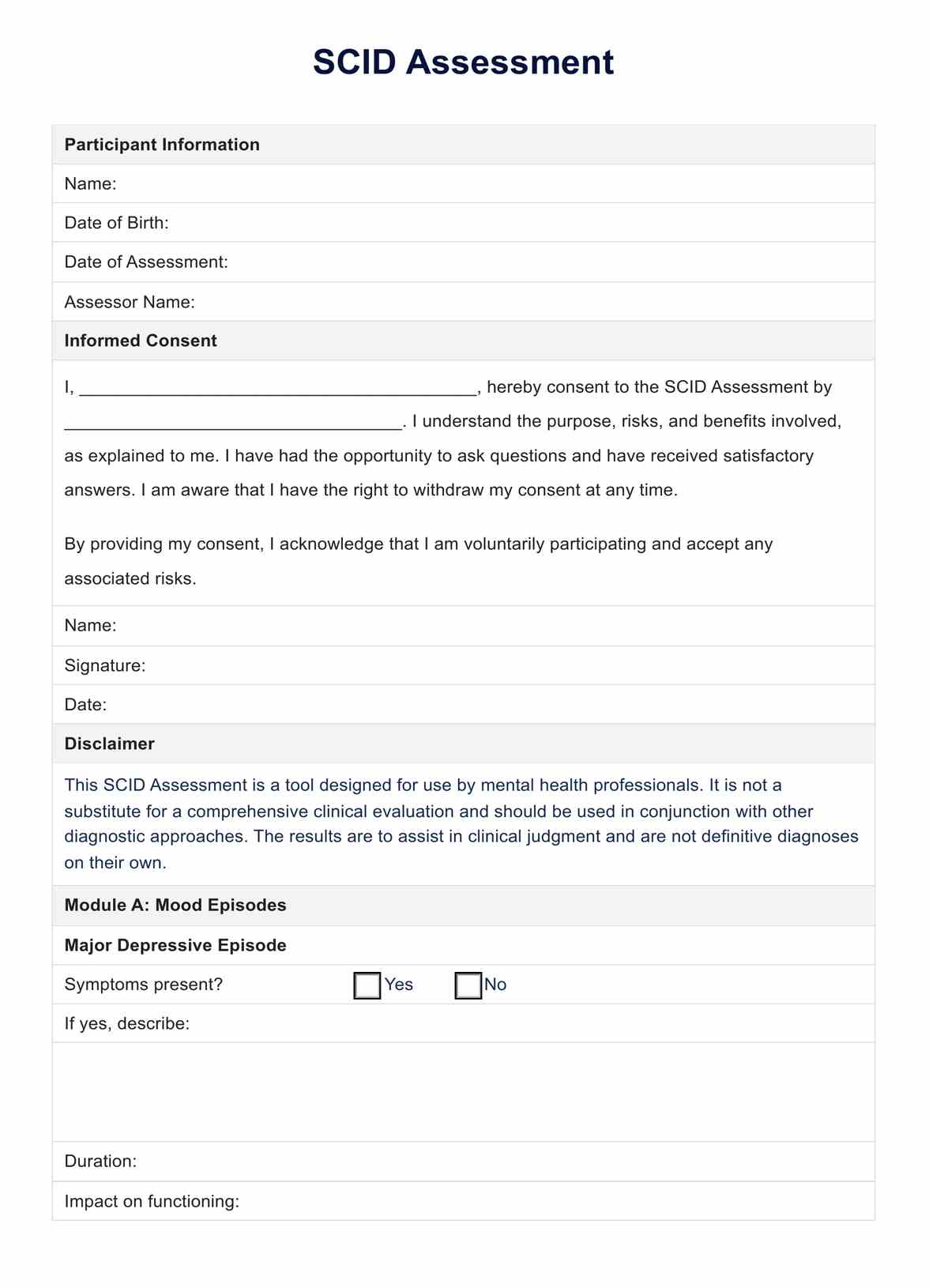The duration of an SCID-5-CV assessment can vary depending on the patient's condition's complexity and the interview's depth. Typically, it ranges from 1 to 2 hours. However, the assessment might take longer for comprehensive evaluations or in cases with multiple disorders.

SCID Assessment
Explore SCID-5-CV, the gold standard for diagnosing mental disorders. Learn how it works and its benefits, and download a free template. Ideal for professionals.
SCID Assessment Template
Commonly asked questions
Yes, the SCID-5-CV is designed for use with adult populations (ages 18 and above). For children and adolescents, specialized versions of the SCID, tailored to the developmental considerations of these age groups, should be used.
Administering the SCID-5-CV requires formal training in its use, typically provided through workshops, online courses, or supervised clinical experience. Mental health professionals should have a solid understanding of DSM-5 criteria and sufficient clinical experience to interpret the findings accurately.
EHR and practice management software
Get started for free
*No credit card required
Free
$0/usd
Unlimited clients
Telehealth
1GB of storage
Client portal text
Automated billing and online payments











